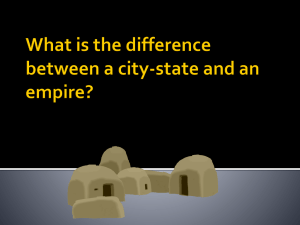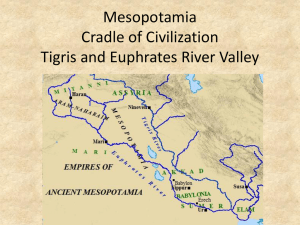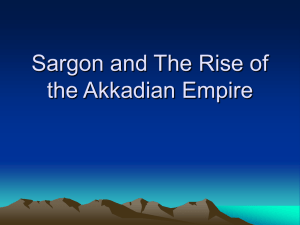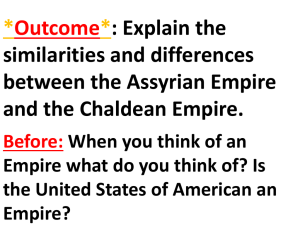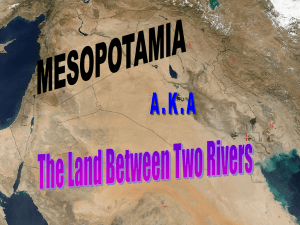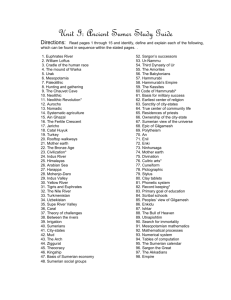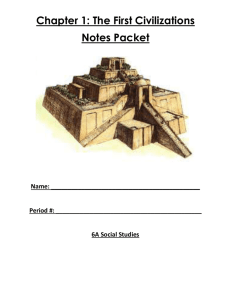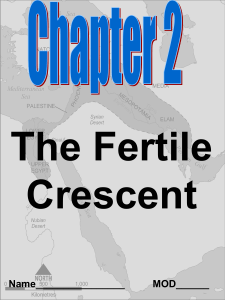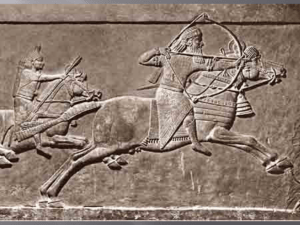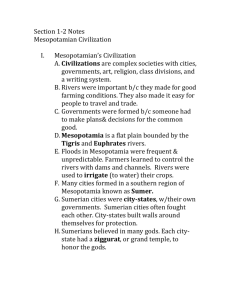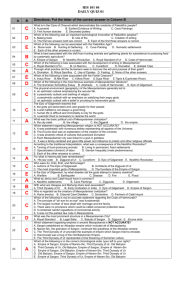Conquests and Empires (Lesson 3 part 2)
advertisement
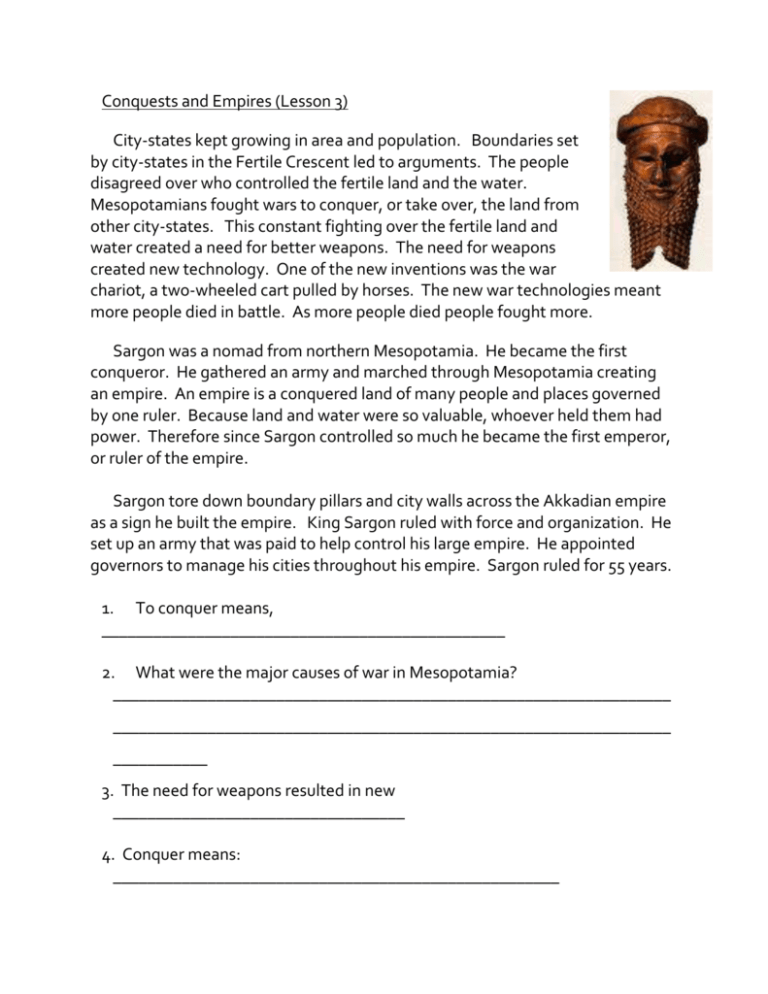
Conquests and Empires (Lesson 3) City-states kept growing in area and population. Boundaries set by city-states in the Fertile Crescent led to arguments. The people disagreed over who controlled the fertile land and the water. Mesopotamians fought wars to conquer, or take over, the land from other city-states. This constant fighting over the fertile land and water created a need for better weapons. The need for weapons created new technology. One of the new inventions was the war chariot, a two-wheeled cart pulled by horses. The new war technologies meant more people died in battle. As more people died people fought more. Sargon was a nomad from northern Mesopotamia. He became the first conqueror. He gathered an army and marched through Mesopotamia creating an empire. An empire is a conquered land of many people and places governed by one ruler. Because land and water were so valuable, whoever held them had power. Therefore since Sargon controlled so much he became the first emperor, or ruler of the empire. Sargon tore down boundary pillars and city walls across the Akkadian empire as a sign he built the empire. King Sargon ruled with force and organization. He set up an army that was paid to help control his large empire. He appointed governors to manage his cities throughout his empire. Sargon ruled for 55 years. 1. To conquer means, _______________________________________________ 2. What were the major causes of war in Mesopotamia? _________________________________________________________________ _________________________________________________________________ ___________ 3. The need for weapons resulted in new __________________________________ 4. Conquer means: ____________________________________________________ 1. Why did Sargon tear down boundary pillars and city walls? ________________________________________________________________ ________________________________________________________________ _________ 6. Then emperor Sargon ruled his empire with ___________ and _______________ Conquests and Empires (Lesson 3 part 2) The first conqueror in Mesopotamia, Sargon, ruled for about 55 years. He was able to keep his empire together because he was organized and ruled with force. However his empire became weak and was soon taken over by a new king, Hammurabi. Hammurabi was king of the Babylonian Empire. He conquered and reunited the upper valley of the Tigris and Euphrates rivers creating a huge empire. Under his rule a system of taxation was created. Taxation is a system where people must pay taxes (money) to support the government. The taxes paid for the many of the improvements in the Babylonia Empire. He encouraged trade, building projects and the care and repair of dikes and canals. Hammurabi is best remembered for the Code of Hammurabi. It was a collection of laws from all of the city-states he had conquered. The 282 laws covered every part of daily life; such as marriage, slaves, stealing, land, prices and military service. One idea in the Code of Hammurabi was the idea of “an eye for an eye”. This means a person who caused an injury would be punished with the same injury. He also introduced the idea of equal justice, or fair treatment under the law. However this idea of everyone being treated equally only worked within each social class. So people in the upper class received the best treatment over the middle or lower classes. Hammurabi’s laws lasted for years but the Babylonian empire was conquered by the Assyrians. After Hammurabi, the Assyrians gained control of Mesopotamia. They wanted to control the trade routes. They went to war with one city-state after another to gain more land soon covering much of southwest Asia. The Assyrians worked to bring the people of their many lands together. They build a system of roads and new buildings in their capital, Nineveh. Find as many vocabulary words as you can from Chapter 2 Lesson 3. Highlight them. ___________________________________________________________________ ___________________________________________________________________ ___________________________________________________________________ ___________________________________________________________________ ___________________________________________________________________
